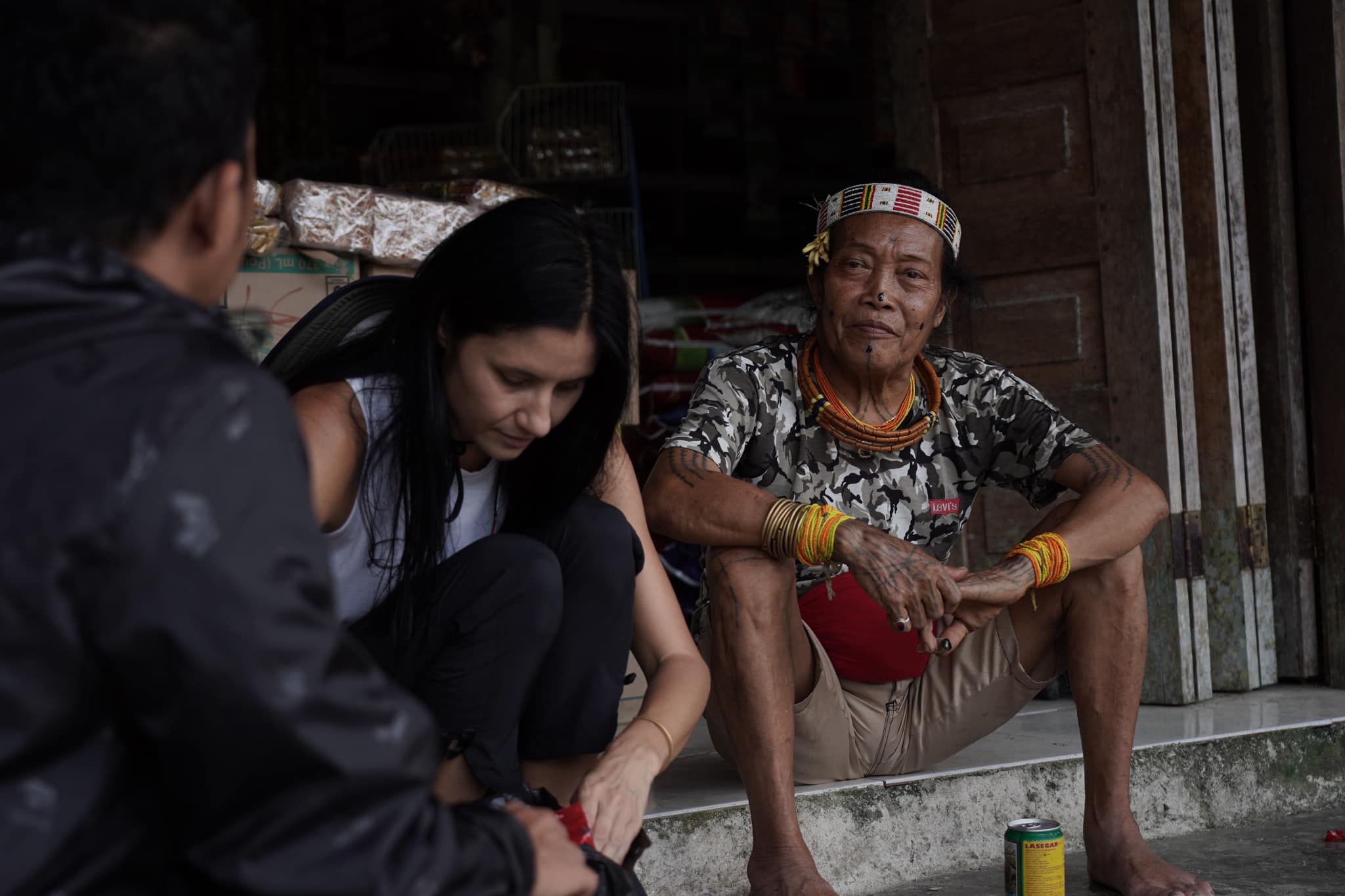
Green.org sat down with Allison Carden Hanes, Founder & CEO at One Health Productions, to learn how she is using her skills and experience as a primatologist and filmmaker to inspire the world about new perspectives in wildlife conservation, ecosystem and human health.
Allison, thank you for being here. Tell us a little bit about you and your background:
I am a trained biologist and primatologist turned filmmaker passionate about wildlife conservation, specifically conservation medicine (one health); the intersect between wildlife, ecosystem and human health. My interests span primatology, marine science, veterinary medicine, public health, human-wildlife interactions, community-based conservation, sustainable development, deforestation and ecotourism. I received my BA in Biology and Environmental Studies from the University of California, Santa Cruz.
I worked with the Schusterman Group: Pinniped Cognition and Sensory Systems Laboratory at the Long Marine Laboratory, assisting set regulation standards on marine mammal noise pollution for the U.S. Fish & Wildlife Service. I completed my MSc in Primate Conservation at Oxford Brookes University in 2011. Working closely with the Uganda Wildlife Authority and Conservation Through Public Health my independent research project focused on disease transmission risks between humans and mountain gorillas of Bwindi Impenetrable National Park, Uganda. Following my MSc I directed the Rwanda based nonprofit Art of Conservation, using the arts and creative learning to teach children and their families about living healthy, and launched the local offshoot nonprofit Conservation Heritage-Turambe.
I work with many nonprofits and professionals across the globe using conferences, events, publications, art, new media, photography, film and digital media/marketing to share my experiences and knowledge. Between my formal education I have worked as a veterinary technician for over a decade and lived in six continents. I am passionate about our world, exploring new places and cultures, meeting unique and extraordinary people, learning, photography, film and would like to improve the health and livelihood of our planet through work as a conservationist, scientist and filmmaker.
I am also an Explorers Club Fellow, a WINGS WorldQuest Flag Carrier and proudly serve on the Young Professionals Council at EcoHealth Alliance that are all based out of New York City. My last completed project, an educational one health short on my MSc work is currently being screening to all tourists entering Uganda. I’m currently working on two feature length documentaries, a multimedia project on singing gibbons and a biopic about the life of Uganda’s first wildlife veterinarian and my former supervisor, Dr. Gladys Kalema-Zikusoka. We are looking for executive producers and grants for both projects for 2023. For more information please email me at allison@onehealthproductions.com.
What would you do with $1 Billion dollars?
I would give back and protect land that Indigenous communities are living on/within, especially biodiversity hotspots. Indigenous peoples comprise less than 5% of the world population, however, protect 80% of the Earth’s remaining biodiversity in the forests, deserts, grasslands and marine environments. I would continue to make films and media that move audiences that do not have the means to see, experience and live with these communities in nature.
Why do you think sustainability & wildlife conservation is such an important topic today?
Sustainability is such a buzz word, very general, probably overused and there are many definitions and types. I think in essence it’s the idea of having foresight and making considerations for the future regarding resources and processes. It is very important today since our population and consumption practices are continuing to grow, especially in wealthier countries. Those with means have the privilege to think about their way of life and actions.
What do you envision your industry looking like 10 years from now?
I straddle a few industries. I envision in 10 years conservationists, environmentalists and climate activists will be fighting more than ever. The documentary film industry will continue to grow. Consumption is consumption. I believe as land, wildlife and communities are pushed out of their last wild places conflicts will worsen but I hope that is not the case.
What can the average person do to make a difference?
I believe even if things do worsen that doing anything, especially locally provides myself with some sense of peace and hope. It is my colleagues and community both locally and globally that keeps me going and sane. No one should feel too disconnected or too small to be involved in the often overwhelming issues facing our environment, animals and people. I believe it is often better to do something locally. Do not be hard on oneself either, or the work and movement lose value. Just do something. Even try to make it fun and creative! An example could be grabbing some friends for a beach cleanup or sharing a moving podcast about colleagues’ work! There are so many ways to contribute and not feel helpless. Our beautiful world deserves it!
Allison, thank you for joining Green.org and sharing your passion for Wildlife Conservation.
Join leaders in business, tech, and sustainability at the 2023 International Green Summits.